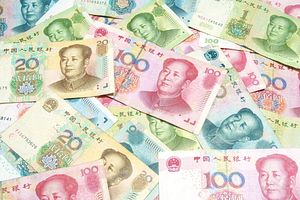A new report by International Comparison Program shows that China’s economy could replace the American economy as the world’s top economy by the end of 2014 (in terms of purchasing power parity). Although economists and commentators have long anticipated that China someday will surpass the U.S. as the top economy, this new finding has still generated lots of headlines and debates.
Unsurprisingly, this finding does not impress a number of analysts and commentators and they believe it is meaningless to focus on China as number one for a variety of reasons, ranging from fake data to China’s serious social problems. However, a closer analysis will show that those reasons do not hold under scrutiny. It matters a great deal to be the largest economy when it comes to international politics. This is not just about bragging rights. Below are some usual criticisms of China’s economy and my arguments as to why they all fail.
First, for the last decades or so there has always been a theory of “China Collapse” in the West. The most famous one is Gordon Chang’s 2001 book The Coming Collapse of China, which predicted that China would collapse by the year of 2011. Of course, China was still alive and well in 2011; so Chang doubled down by extending the date for one more year to 2012. Now we are in 2014 and there are no signs that China will collapse anytime soon; so evidently this “China Collapse” theory itself has collapsed. Other similar predictions of China’s hard landing are not doing well either. Perhaps instead of predicting when China’s economy will collapse or hard landing, they should focus on what China has done right to achieve successes.
Second, some analysts choose not to believe China’s growth story by claiming that China’s economic data is fake. To be sure, some local governments in China do fake economic data for promotion purposes and they have been exposed to some degree. Whereas many in the West believe that China’s growth story has been exaggerated, others believe that it is actually the opposite, meaning that most people have actually underestimated the size of China’s economy. One key factor might be that people have underestimated how much Chinese consumers spend.
A third criticism of China’s economic development points to a large number of social and political problems such as the lack of rule of law and democracy and low living standards as evidence of the insignificance of China’s GDP. Though partly true, this criticism misses the main point, which is that China is still a developing country (ranked 99, measured by GDP per capita) and developing countries by definition have many social problems. The key, however, is whether this developing country can continue its growth at a reasonable speed in the future. China does not need to grow at double digits like it did in the last two decades to turn into a mid-level developed country; a 5-6 percent rate of GDP growth per year would be enough for China to achieve this goal by 2050. More importantly, it depends on whether China can implement serious reforms to change its economic and social structures that are necessary for sustainable growth in the long run. The good news is the current Xi-Li administration is determined to embark on meaningful reforms, as evidenced by a new law on environmental protection.
Power, especially hard power, is the foundation in international politics. National GDP is perhaps the best indicator of a country’s overall power as GDP is highly correlated with many other sources of influence such as military power, soft power, political influence and even rule of law and democracy (here, here, and here). Other things being equal, a bigger GDP means a bigger military, and thus enhances one’s chance of survival in anarchical international politics. As renowned theorist of international politics John Mearsheimer would argue, power is the ultimate means one country can protect itself from attacks by others and countries should try to get it as much of it as possible. Despite claims by some that we are now in a liberal world order, the shadow of power politics is still with us, as seen by the ongoing tension between Ukraine and Russia.
In this sense, China reclaiming the title of world’s largest economy is truly significant as it signals the beginning of a new international order, which, of course, will take some years to emerge and consolidate. The important thing is this: a new global era will start with China becoming number one again.

































